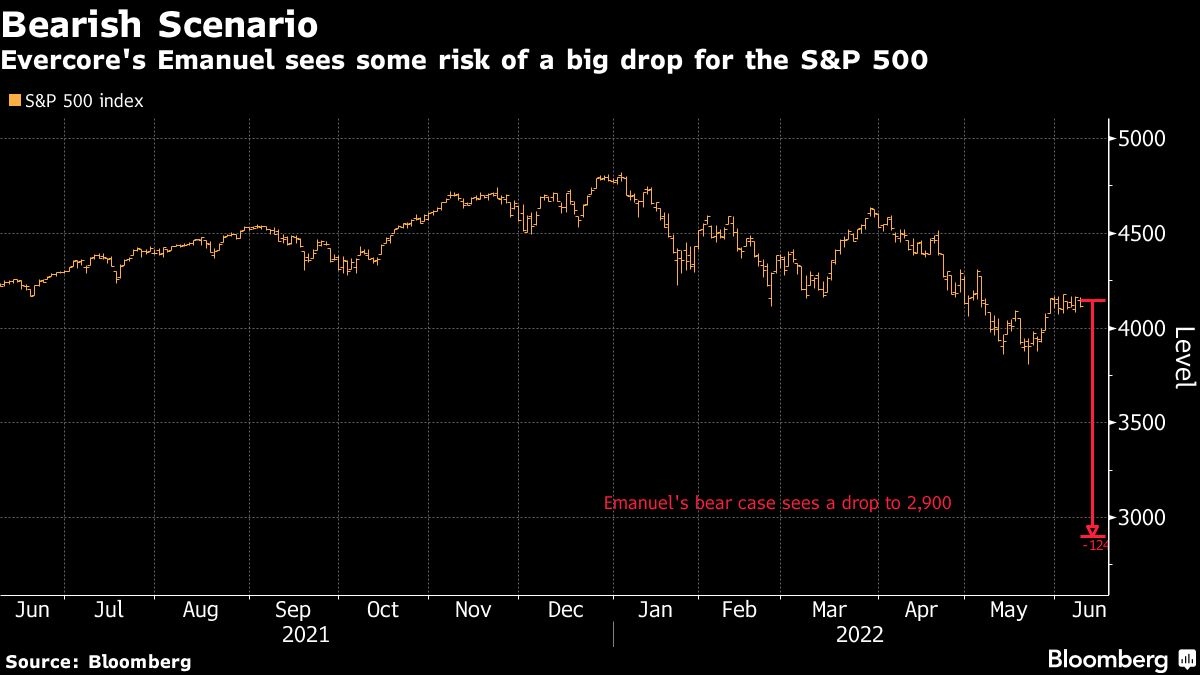Jun 9, 2022
One strategist’s bear case sees the S&P 500 sinking another 30%
, Bloomberg News
Even as energy names reach record highs, there is still opportunity to enter the market: Strategist
US stocks could drop another 30 per cent if spiking energy costs spark an economic contraction, according to Evercore ISI strategist Julian Emanuel.
Emanuel revised his 2022 target for the S&P 500 index to 4,300 from 4,800 but also outlined a more bearish scenario where the gauge falls to 2,900 -- a level last seen in 2020 in the early part of recovery from the pandemic rout. The US stock gauge closed near 4,115 Wednesday.
“What we haven’t seen is that fundamental catalyst, and we all know that the biggest fundamental catalyst is falling energy prices,” Evercore’s chief equity and quantitative strategist told Bloomberg Television Thursday. “We look for it everyday and it is not happening.”
Higher oil prices “have a history of increasing the probability of a recession,” he wrote in a note Wednesday, adding the average “recession bear market” in the past century is a slide of about 41 per cent.

Stock market prognostication has rarely been so fraught, encompassing the highest inflation in a generation, sharp interest-rate hikes, war in Europe and China’s embrace of COVID lockdowns at great economic cost.
The S&P 500 is down almost 14 per cent so far this year and a bounce that began in mid-May has fizzled as warnings about the economic outlook and shrinking corporate profit margins become ever more shrill.
“People are starting to worry about whether we are going to see some more lowering of guidance before the earnings season starts in July and then maybe even further once it starts,” Matt Maley, chief market strategist at Miller Tabak + Co., said on Bloomberg Television. “People are definitely getting more defensive again.”
Emanuel has a bullish scenario of 4,800 if investors get some relief from price pressures -- a big if given that US inflation is expected to stay above 8 per cent in a report due Friday. “If you get that break in inflation and you get consumer spending to hold in there, that’s where we get the upside,” he said.
Technical indicators, meanwhile, show a bearish bias, according to Katie Stockton of Fairlead Strategies. “The relief rally has done nothing to improve long-term downside momentum behind the major indices,” she wrote in a note.








